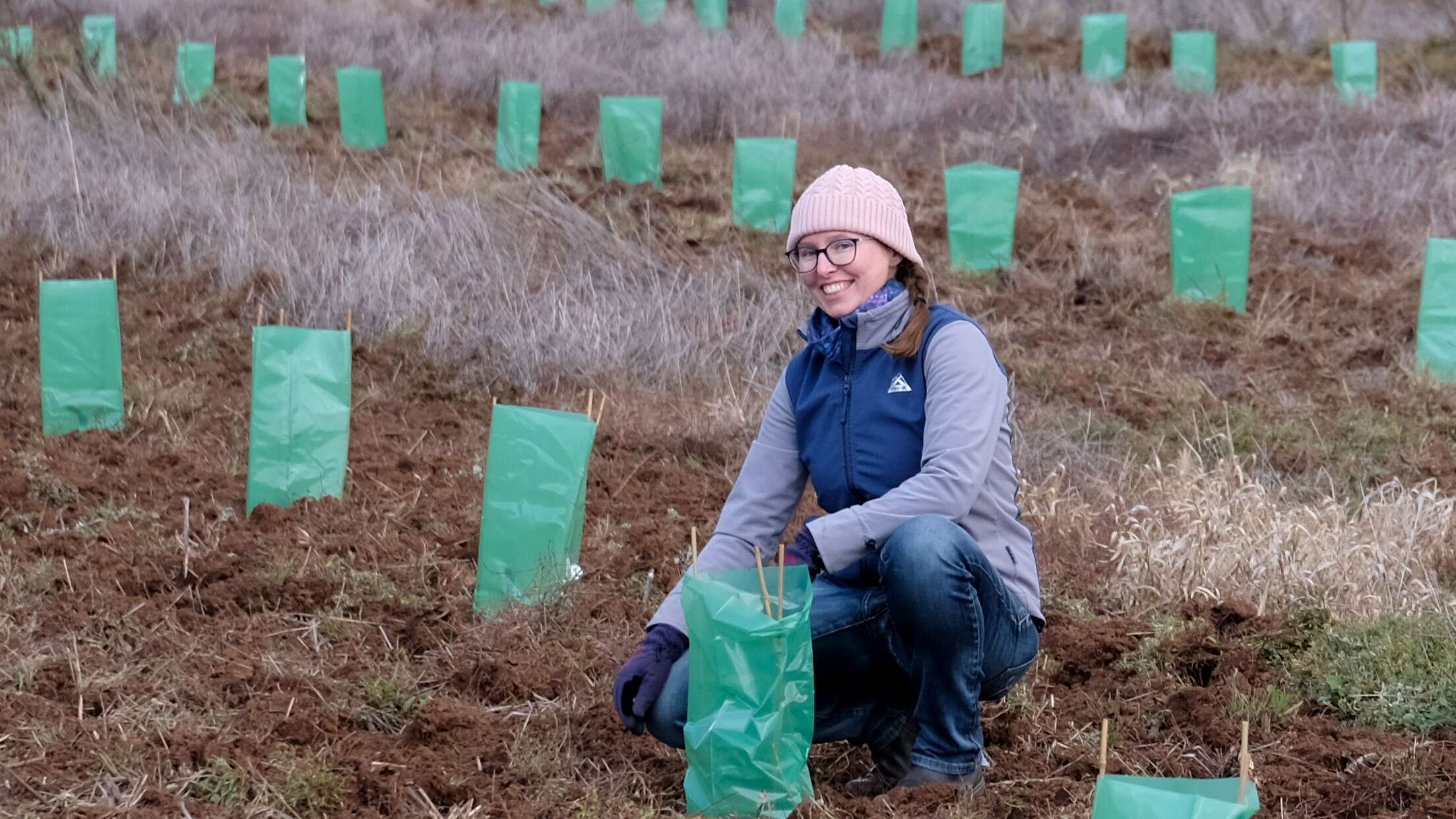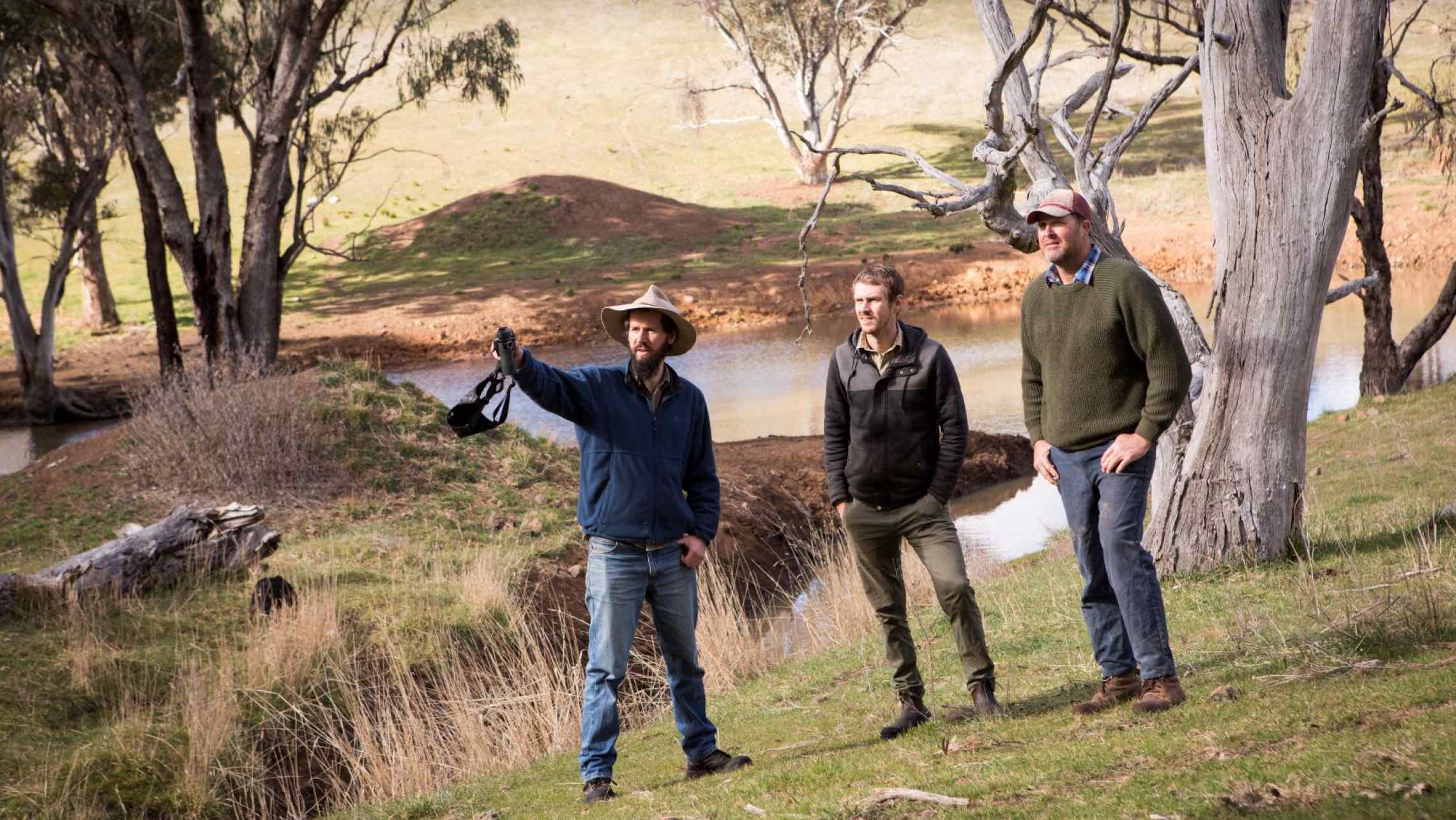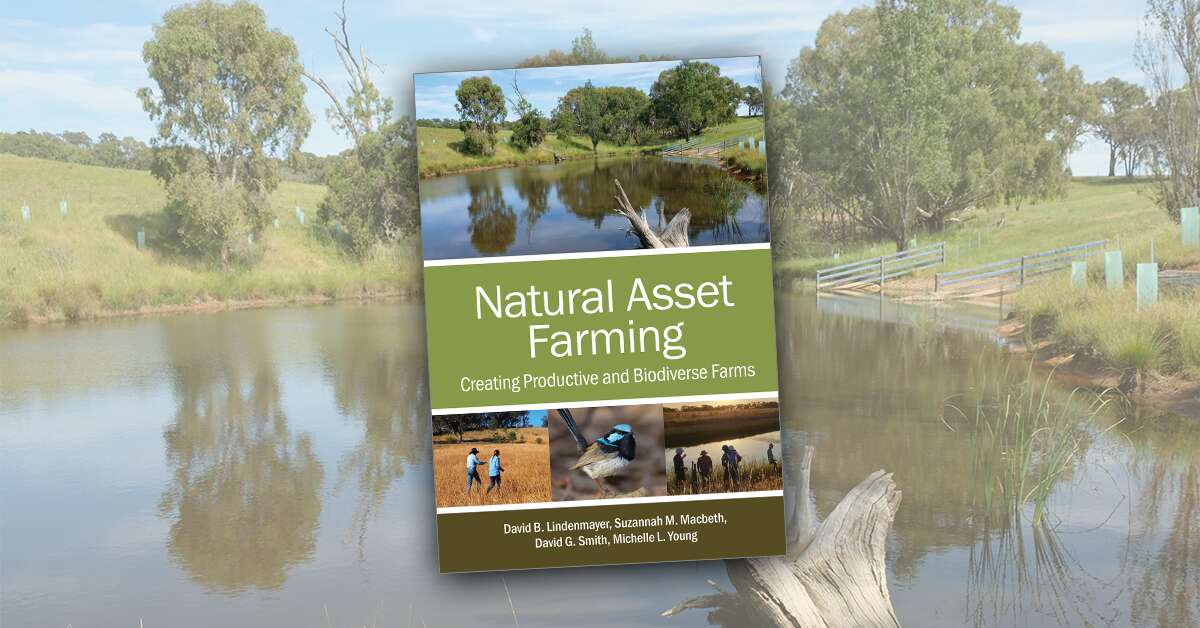
New research highlights wellbeing impacts of natural asset management
A new publication arising from Sustainable Farms mental health research demonstrates the potential positive benefits to farmers’ lives of engaging in natural resource management (NRM) practices.
The paper, published in Society and Natural Resources this month, found that the specific NRM practice of tree-planting was linked to higher levels of social connectedness, while broader whole-of-farm approaches to NRM were associated with increased farmer wellbeing.
Anecdotally, many farmers report great satisfaction and increased personal wellbeing from engaging in practices such as tree planting and from observing the results of these practices. Kimberly Brown, mental health and wellbeing researcher at the Centre for Mental Health Research and Sustainable Farms at The Australian National University, and colleagues used data from the University of Canberra’s Regional Wellbeing Survey to test whether these relationships could be quantified.
“We found that tree-planting on agricultural land was linked to higher levels of social connectedness,” Ms Brown said. “This makes sense because many farmers engage in these practices as part of a local group, such as Landcare. Farming can be isolating work, and participating in NRM programs can give farmers a chance to connect with others in the community, which is so important for their mental health.”
“We weren’t able to identify a significant relationship to personal wellbeing, but this is likely because so many factors influence an individual’s wellbeing that a specific practice like tree-planting is unlikely to be a determining factor,” Ms Brown said.
“However, the study also looked at the impact on wellbeing when farmers undertook tree-planting as part of broader, farm-scale change in their NRM practices – and in this case positive impacts on wellbeing were identified.”
Michelle Young, Director of Sustainable Farms, said the findings highlight the complexity of factors at play for farmers who may enhance natural assets on their farms.
“Our natural asset farming framework provides many pathways for farmers to undertake specific NRM projects on farms. This research demonstrates how those specific projects can support social connectedness, which is really key to the health of farmers and to the sustainability of rural communities,” Ms Young said.
“Many farmers tell us that they begin their natural assets journey with one small project such as planting a shelterbelt, often in collaboration with a local community group such as Landcare, but over time often they undertake several projects that cumulatively have a transformative effect on their farm, and on how they feel about their farm environment. This research really aligns with these farmers’ stories. The key insight in this new research is that planting trees can lead to social connectedness, but over time a broader approach to the farm landscape is associated with greater farmer wellbeing.”
“The work provides some important insights into farmer adoption of conservation practices, and how the social benefits of NRM can keep farmers engaged in conservation over the long term. Importantly, it also highlights the importance of ensuring that programs engaging farmers in NRM actively incorporate social gains in their design and implementation,” Ms Young said.
“This particularly important at a time when climate change and the extinction crisis are having a real impact on farms and on farmers. Participation in NRM activities and adoption of practices such as tree-planting are going to be key to the ability of farmers and rural communities to adapt and respond.”
The paper is available online here for journal subscribers. Contact Sustainable Farms directly for alternative access options.
Kimberly Brown explains the aims of Sustainable Farms mental health research.




